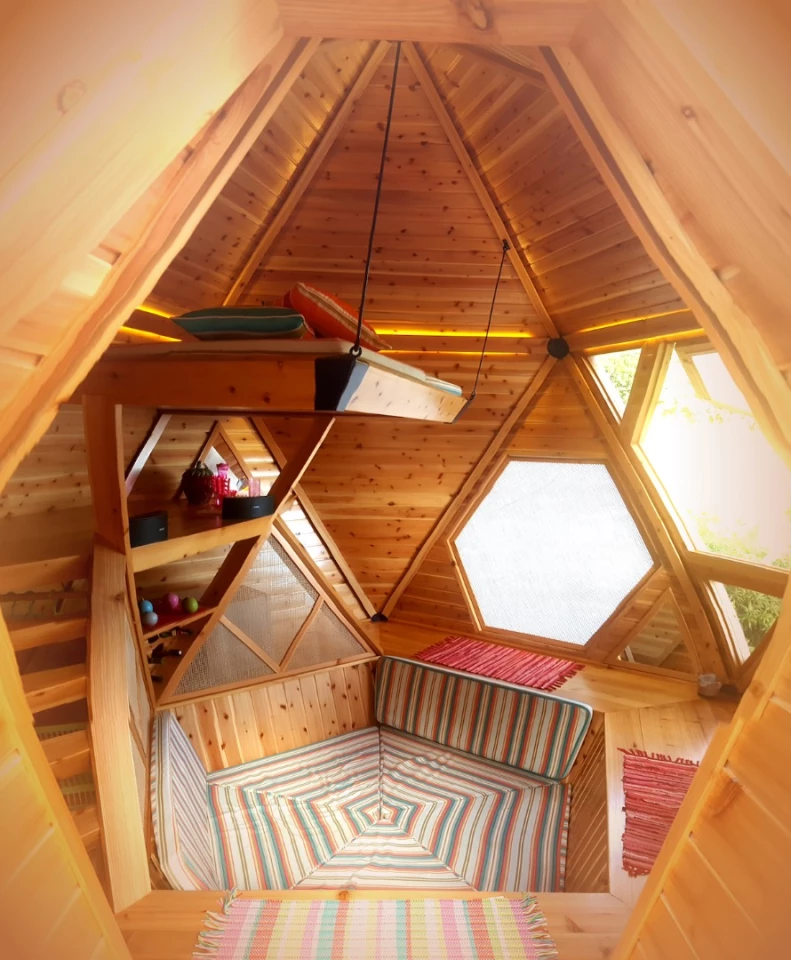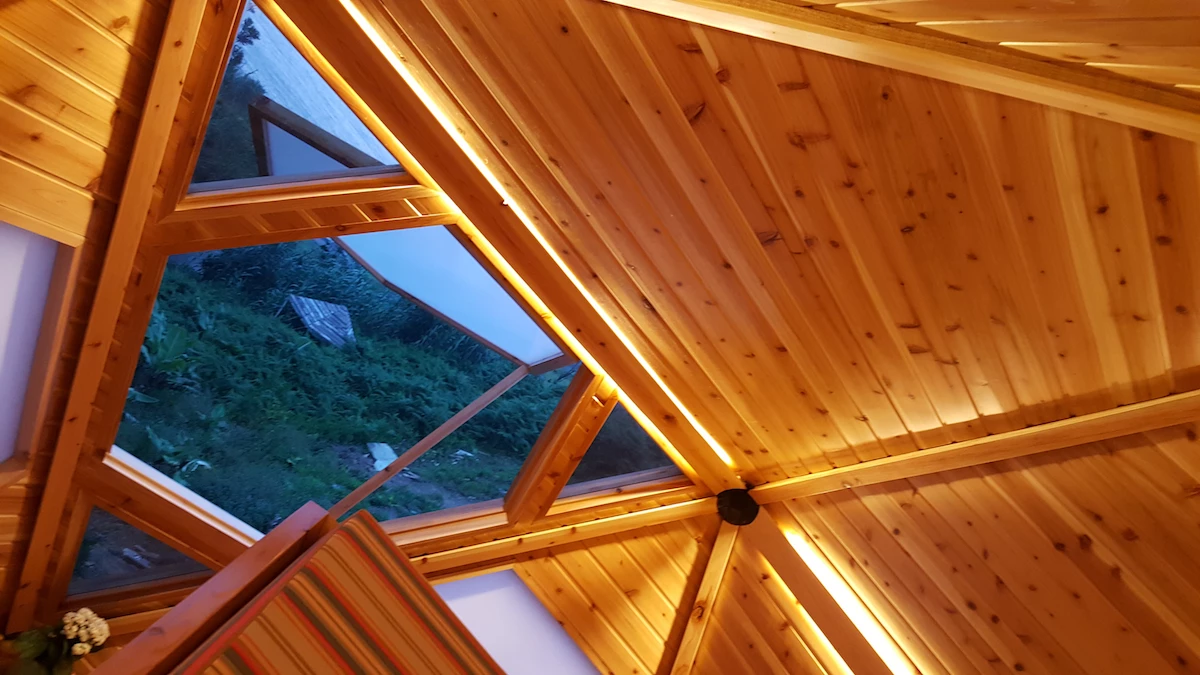The Azores, the beautiful group of Portuguese islands in the Atlantic Ocean, has seen an increase in tourism recently. In a bid to capitalize on this while stopping the unspoiled landscape from getting, well, spoiled, the Tourism and Agribusiness Development Company of the Azores (TADA) is developing eco-resorts throughout the islands that feature solar-powered cabins.
TADA plans six eco-resorts around the Azores, but the first is under construction in the Vila Franca Do Campo Region of São Miguel Island. Due to open in the second quarter of 2017, it will feature an as-yet undecided number of the cabins, dubbed EcoPods, based on three models.
The smallest measures 15 sq m (161 sq ft) and includes a coffee machine, a refrigerator, a sunken seating area, a TV, and a raised sleeping area. Because of the lack of space, the bathroom is outside and it's heated by an external wood burner.
The next size up is 20 sq m (215 sq ft) and includes the above, plus a small inside bathroom. The largest model sizes up at 30 sq m (322 sq ft), it's relatively roomy and includes the above plus a small kitchenette.
Bicycles, both human-powered and the electric kind, will be on-site for visitors to explore the local area, and other outdoor activities like hiking will also be on the menu.

The EcoPods are prefabricated and sit atop stilts made from recycled electricity poles. The materials used include in construction include locally-sourced pumice stone, windows made from recycled plastic bottles, and locally-grown timber.
TADA architect John Shenton told us that they are pretty tough, to ensure they can withstand the active seismic activity in the Azores, in addition to high-winds.
They'll get power from a solar panel array. Due to planning issues, composting toilets aren't currently installed, but the cabins instead have standard toilets with septic tanks.
TADA hopes to put its EcoPods to other uses too, including, possibly, disaster relief. The firm also has additional eco-resort projects in the works in Morocco and the Middle East.
Source: TADA

















